
Meet the Team

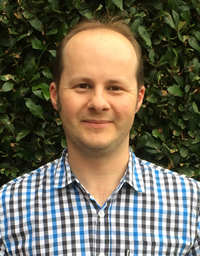
Prof. Gavin H. Thomas
Professor of Molecular Microbiology, University of York
Gavin is a microbiologist based at the University of York since 2002 and has worked for over a decade on bacterial transport systems. His research, primarily funded by the BBSRC, has revealed fundamental information about an important class of bacterial transporters called TRAP transporters, particular in the context of their function in human pathogens, but more recently for biotechnology and bioenergy through work with Green Biologics and Unilever. He brings his extensive knowledge of bacterial physiology, metabolic modelling and membrane transporters to Project DETOX and is the formal Principle Investigator on the project.
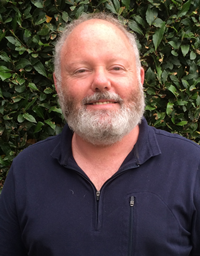
Dr. Tony Larson
Head of Metabolomics & Proteomics, Bioscience Technology Facility, University of York
Tony Larson has a background in plant and algal biochemistry and specific expertise in developing LC- and GC-MS workflows for screening biomolecules. Working in the Centre for Novel Agricultural Products (CNAP) at the University of York since 1999 and now leading the Metabolomics and Proteomics laboratory in the Bioscience Technology Facility, he has worked in charity, industry, EU, and BBSRC funded research programmes to profile a range of economically important target compounds including polyunsaturated lipids, medicinal terpenes, and opiate alkaloids. He has a particular interest in developing software pipelines for processing large scale untargeted metabolomic datasets, for example those gathered as part of breeding programmes and mutant screens.
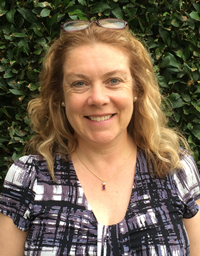
Prof. Kathryn Lilley
Director, Cambridge Centre for Proteomics
Kathryn heads the Cambridge Centre for Proteomics. Her research group is interested in the developing technologies which enable measurement of the dynamics of the proteome in a high throughput manner in space and time during cellular processes such as signalling and differentiation. To date these technologies have mainly been targeted to eucaryote systems, but within the DETOX project these technologies will be utilised to study the integrity of the membranes of Escherichia coli and Clostridial species when the bacterium is engineered to synthesise a variety of different chemical entities. The study will also assess how the membrane proteome responds during fermentation to understand the mechanisms underlying cellular stress and export of the chemical entities. Her group will also use standard quantitative proteomics methods to determine the effects on the total proteome of the bacterial cells and adduct formation on proteins.
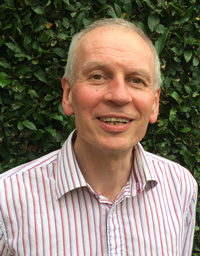
Prof. Jeff Green
Professor of Microbiology, University of Sheffield
Jeff’s speciality is understanding how bacteria respond to environmental change by exploiting their biochemical versatility. Research in Jeff’s lab is focused on how bacteria respond to stress, in particular how bacteria sense and respond to changes in oxygen availability, and to oxidative and nitrosative stresses. These studies have led to a particular interest in characterizing signal perception, DNA recognition, and interactions with RNA polymerase for several members of the CRP-FNR family of transcription factors. In addition, Jeff’s team are exploiting systems approaches to learn more about the dynamics of the transcriptome as bacteria transit from one condition to another.
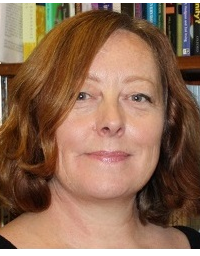
Prof. Susan Molyneux-Hodgson
Professor of Sociology, University of Exeter
Susan has worked in the field of social studies of science for over 20 years. She specialises in the sociological analysis of scientific knowledge production, science-society relations and interdisciplinary research, using primarily ethnographic approaches. For the last 8 years she has been tracing the emergence of synthetic biology as a potentially new field of practice. Within the DETOX project she leads a research strand on ‘responsible research and innovation’. Her research has been supported by ESRC, EPSRC, BBSRC, EU and industry. She is a Fellow of the Royal Society of Arts.
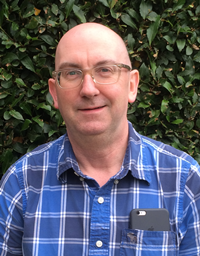
Prof. David J. Kelly
Chair of Microbial Physiology, University of Sheffield
David has extensive research expertise in bacterial physiology and biochemistry, membrane protein transport processes and bioenergetics. His laboratory is engaged in studies of the physiology of both bacterial pathogens and also industrially relevant bacteria, in particular the responses to stresses such as oxygen, toxic metabolites, many aspects of carbon metabolism and characterisation of the electron transport chains. In particular, David’s long-standing interest in membrane solute transport mechanisms led to his lab’s discovery of an entirely new class of binding-protein dependent prokaryotic solute transporters, the TRAP transporters, now known to be common in a diverse range of bacteria and archaea.
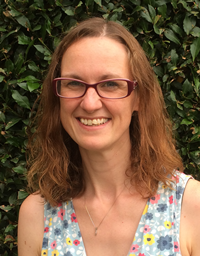
Dr. Joyce Bennett
DETOX Project Manager, University of York
Joyce has a PhD in biology and experience of working for international biotechnology firms. She project managed antibody-based drug discovery projects at Genmab, gaining a PRINCE2 qualification, and has 6 years experience coordinating product development projects at the consultancy firm Sagentia. Joyce joined the team at the start of the project in April 2016 and is responsible for project managing the activities across the multiple academic and industrial sites and reporting our progress.
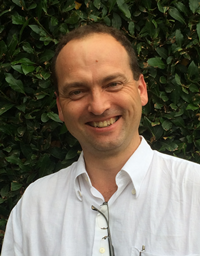
Dr. Boyan Bonev
Lecturer in Physical Biochemistry, University of Nottingham
Boyan is a biophysicist primarily interested in the structure and organisation of biological membranes. Molecular structure and interactions are studies by solid state NMR, electron microscopy, SRCD and modelled using high performance computing. Long-standing efforts in membrane receptor recognition now translate into engineering of molecular tools for microbial control. Our work is supported by the BBSRC, MRC, EPSRC and we work in collaboration with DuPont, Unilever and other industrial partners. Our contribution to the DETOX Partnership is in characterisation and optimisation of bacterial inner and outer membranes and transport.
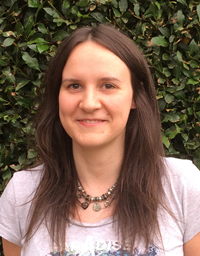
Dr. Vicki Springthorpe
Post Doctoral Research Associate, University of York
Vicki completed her PhD in Computational Biology at the University of York in 2014. Her broad academic interests stem from participation in a wide range of modelling and bioinformatics projects; including microbial genetics, eukaryote phylogeny and plant ecology. Vicki also has experience of software and web development, and since joining the DETOX project in May 2016 has been working on creating the website, database and software tools associated with DETOXbase.
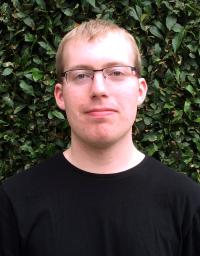
Dr. Ben Willson
Post Doctoral Research Associate, University of York
Ben’s main area of research interest is the application of synthetic biology principles to the solventogenic clostridia. During his PhD at the University of Nottingham, he was involved in the engineering of Clostridium acetobutylicum for the expression of a cell-wall anchored cellulosome, with the aim of allowing butanol production from lignocellulose. Ben joined the DETOX project in May 2016, where he will be working on the engineering of E. coli and Clostridium species for tolerance to inhibitors found in fermentation feedstocks.
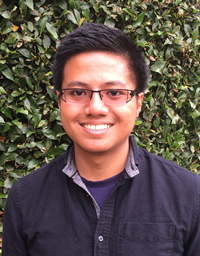
Reyme Herman
Research Associate, University of York
Reyme completed his bachelor’s degree at the University of Adelaide where he majored in Microbiology, Immunology and Genetics. He then moved to the University of York for his MSc by research degree in the field of Salmonella pathogenesis where he developed an interest in understanding the role of various membrane proteins within different bacterial systems. He is currently working on biochemical pathways in Staphylococcus, as well as investigating solvent tolerance mechanisms that can be used for different solventogenic strains in the DETOX project.
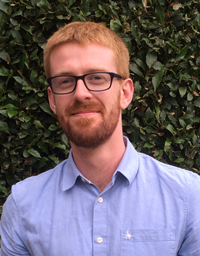
Dr. Joe Webb
Post Doctoral Research Associate, University of Sheffield
Joe’s research interests are the use of synthetic biology to develop novel biocatalysts capable of producing industrially relevant chemicals from renewable feedstocks. During his PhD at the University of Nottingham, Joe applied metabolic engineering and fermentation techniques to develop a strain of E. coli capable of producing citramalic acid, a precursor for synthesising the bulk chemical methyl methacrylate, at industrially relevant concentrations. Joe joined the DETOX team in May 2016 and will be investigating the transcriptional and metabolic changes that occur within the host organisms in response to chemical production.

Dr Vivien Yeh
Post Doctoral Research Associate, University of Nottingham
Vivien’s main research interest is studying membrane interactions using solid state nuclear magnetic resonance. She obtained her PhD at National Taiwan University studying membrane protein and membrane interactions, and since has been fascinated by the study of molecular interactions of membrane. Vivien joined the DETOX team in April 2018, and will be tackling cell toxicity by investigating the interaction between bacterial cell membrane and hydrophilic chemical products.
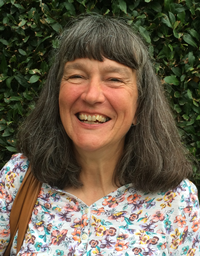
Prof. Gill Stephens
Professor of Bioprocess Engineering, University of Nottingham
Gill’s main research interest is in using cells and enzymes as biocatalysts to manufacture chemicals. Gill trained as a microbial biochemist, with a BSc from the University of Kent and PhD from the University of Warwick. She did postdoctoral research on the acetone-butanol fermentation (University College of Wales, Aberystwyth) and oxygenase-catalysed biotransformations (University of Warwick). Gill then joined the Department of Chemical Engineering, UMIST in 1988 (now part of the University of Manchester), and established a research group working on biotransformations. She joined the University of Nottingham in 2010 as Chair of Bioprocessing and BBSRC Research Development Fellow. Current projects include metabolic engineering to produce bulk chemicals and monomers from renewable feedstocks, overcoming product inhibition in microbial processes and continuous biomanufacturing.
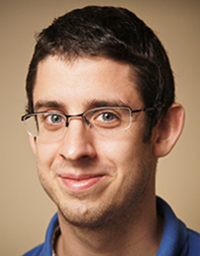
Dr Sandy Macdonald
Post Doctoral Research Associate, University of York
Sandy’s research interests cover a broad range, including insect-bacterial symbioses, metabolism, and ‘omics data analysis. He completed his Ph.D. at Moredun Research Institute and the University of Edinburgh, modelling pneumonic disease in cattle. He has worked previously at the University of York as a postdoctoral researcher building in silico metabolic models of the symbiosis between the pea aphid and its obligate symbiont Buchnera, and as a bioinformatician for the Centre for Chronic Diseases and Disorders (C2D2) analysing a broad range of ‘omics data.
Sandy joined the DETOX team in April 2020 at the University of York, to continue Vicki Springthorpe’s work on DETOXbase while she is on maternity leave, maintaining and adding features to the databases and websites that are part of the DETOX project.
Former team members
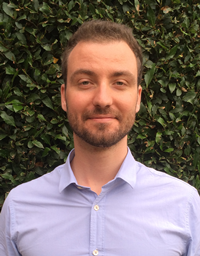
Dr. Luca Rossoni
Research Fellow, University of Nottingham
Luca is interested in developing new bioproduction processes for commodity chemicals through synthetic biology and in improving existing ones by maximising yields from renewable feedstock and overcoming product toxicity. His expertise includes metabolic engineering, microbial fermentation, applied biocatalysis using whole cells and isolated enzymes, enzymology and evolution of enzymes with random and rational approaches.
During his PhD, obtained in 2015 at the University of Nottingham, Luca worked on metabolic engineering of E. coli and directed evolution of enzymes for the bioproduction of methacrylic acid, in collaboration with Lucite International. Since then, he has completed an iUK‑funded project on the development of a novel, carbon efficient metabolic pathway for C5 sugars utilisation in E. coli, in partnership with Lucite International and Ingenza. He then took part in other industrially sponsored projects and joined the DETOX team in April 2016.
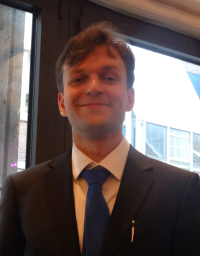
Dr. David-Paul Minde
Post Doctoral Research Associate, Cambridge Centre for Proteomics
David recently started his postdoc in the Cambridge Centre for Proteomics. He is broadly interested in protein structure and regulation, and his previous research focused on protein folding and non-folding of intrinsically disordered proteins. His current ambitions include development of high-throughput quantitative microbial proteomics, structural membrane proteomics and integrative modeling of proteome dynamics in changing environments. As part of DETOX, David will be investigating the impact of a range of defined chemical stresses on the proteomes of key industrial organisms.
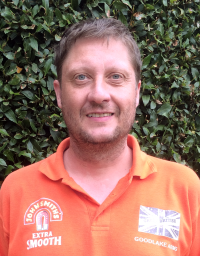
Dr. Preben Krabben
Head of Innovation, Green Biologics Ltd
Preben is a chemical engineer turned microbial physiologist. He finished his PhD at the Technical University of Denmark in 1997 on penicillin fermentations, and followed it up with 10 years of Post-doc at the Technical University of Delft and University College of London. Since 2007 he has been working with Green Biologics, lately as Head of Innovation. Green Biologics are focussed on commercialising the use of Clostridia to produce chemicals such as n-butanol and acetone. He has more than 20 publications to his name covering areas such as system approaches to studying physiology, genome sequencing of the DETOX model strains, molecular microbiology tool development, and historic accounts of the early development of the acetone-butanol process. His interest is to develop a better physiological understanding of Clostridia, which is important to drive down subsequent cost of strain and process developments.
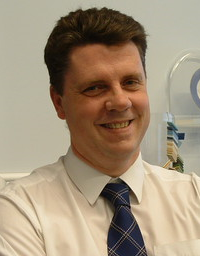
Dr. Graham Eastham
Lucite International
Graham is co-inventor on several patents and has co-authored several papers relating to the palladium catalysed carbonylation of ethene. He has the unique experience of being part of a team taking a chemical process from lab scale invention, through piloting, to construction and commissioning. He was a co-inventor on the first filed patent for the “Lucite International Alpha Process” in 1994 and was on-site in Singapore in 2008 when the first 100K tonne plant was commissioned. Past interests are in the synthesis of novel ligands to stabilise transition metals and the understanding of catalyst mechanisms and decay process’s to enable increased catalyst lifetimes to be obtained. More recently his work has focussed on the development of sustainable biobased routes to methacrylate esters. Lucite is fully committed to developing technology for the production of methacrylate esters via sustainable sources.
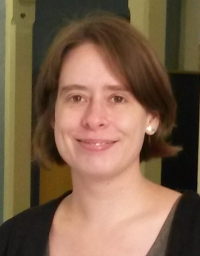
Dr. Sally Atkinson
Research Associate in Anthropology, University of Exeter
Sally works on the anthropology of science and technology, her research includes the study of evolving national and transnational research agendas, and the development of multi-disciplinary research platforms in experimental research and bioinformatics. Supported by the ESRC and MRC and working across public-private partnerships, her work examines how researchers experience emerging infrastructures in the development of collaborative scientific innovations. In the DETOX project Sally will be working with participating researchers to understand how ‘responsible research innovation’ is developed in practice.

Dr. Sophie Vaud
Research Fellow, University of Nottingham
Sophie joined the DETOX team in Nottingham from Oct 2018- Jan 2020, where she worked on the fermentation of toxic compounds. Continuing from Luca’s work, Sophie supplied the team with fermentation samples for multi ‘omics analysis.